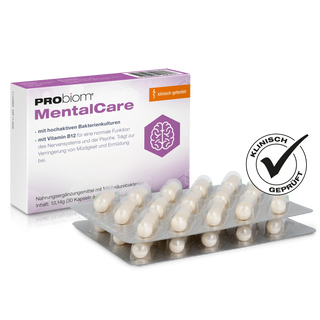Stress is an everyday phenomenon that can occur in various areas of life—be it at work, in the family, or in one's social environment. A certain amount of stress can be motivating, but too much stress can have a negative impact on our physical and mental health. To avoid serious health consequences, it is important to recognize the symptoms of stress early and take appropriate countermeasures.
Physical symptoms of stress
Stress often first manifests itself on a physical level. Many people suffer from headaches and migraines caused by the constant tension. The gastrointestinal tract can also be affected, leading to an increased incidence of digestive problems such as diarrhea, constipation, or stomach pain. The cardiovascular system is also sensitive to stress, which can manifest as increased blood pressure, rapid heartbeat, or a feeling of tightness in the chest. Sleep disturbances can also occur because the body has difficulty finding rest. Muscle tension, particularly in the neck and shoulder area, is also a common symptom of stress.
Psychological symptoms of stress
Not only the body, but also the psyche suffers from prolonged stress. Many sufferers feel restless and nervous, which makes it difficult for them to relax. Irritability increases, and mood swings become more frequent, which also strains interpersonal relationships. Concentration problems can arise, making it difficult to focus on tasks. Another sign of chronic stress is persistent exhaustion and lack of motivation, often accompanied by fatigue and listlessness. Long-term stress can also increase the risk of depression and anxiety, which can significantly impair overall quality of life.
Behavioral symptoms of stress
Stress not only affects the body and mind, but also impacts behavior. Many people tend to turn to alcohol, nicotine, or unhealthy food more frequently during stressful times. Social withdrawal is also a typical symptom, as those affected meet less often with friends or family and become increasingly isolated. Another warning sign is uncontrolled emotional outbursts such as sudden anger or frustration. Eating behavior can also change, with either overeating or too little eating, which can have negative health effects.
Strategies for coping with stress
To alleviate stress-related symptoms, it is important to take targeted countermeasures. Relaxation techniques such as meditation, progressive muscle relaxation, or targeted breathing exercises help calm the body and reduce stress levels. Sport and exercise are also effective methods for reducing stress hormones and increasing general well-being. A healthy and balanced diet supports the body in becoming more resilient to stress. Probiotics, in particular, play an important role here. Studies show that the gut microbiome plays a crucial role in stress regulation. Probiotic foods such as yogurt, sauerkraut, or kefir can promote healthy gut flora, which in turn has a positive effect on the nervous system and helps regulate stress hormones.
Another important factor is a healthy sleep rhythm. Regular bedtimes, a quiet environment, and avoiding electronic devices before bedtime can improve sleep quality. Social support also plays a major role in stress management. Talking to friends, family, or professional counselors can help process stress and gain new perspectives. Effective time management can also contribute to reducing stress. Realistic planning, setting priorities, and consciously scheduling relaxation time can help make everyday life more relaxing.
Conclusion
Stress is a natural part of life, but it shouldn't get out of hand. Recognizing the symptoms of stress early on allows you to take targeted countermeasures and avoid long-term health problems. Through conscious relaxation, regular exercise, a healthy diet, and the integration of probiotics into your daily diet, you can sustainably improve your well-being. Good sleep, social support, and thoughtful time management also contribute to successfully managing stress and improving your quality of life.













